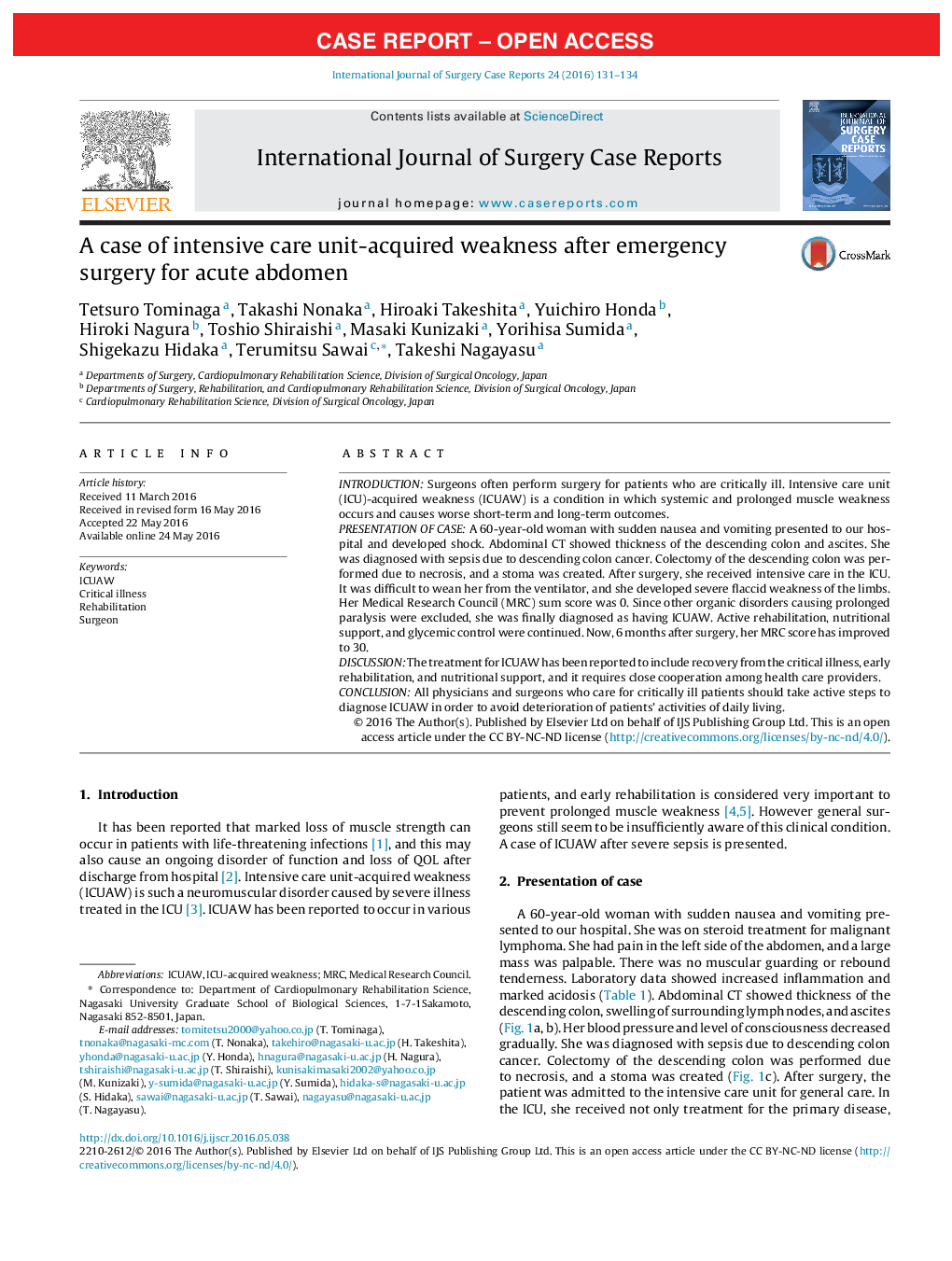| Article ID | Journal | Published Year | Pages | File Type |
|---|---|---|---|---|
| 4288264 | International Journal of Surgery Case Reports | 2016 | 4 Pages |
•We surgeons often operate on critically ill patients.•ICUAW involves systemic and prolonged muscle weakness in critically ill patients.•However, surgeons have not yet become sufficiently familiar with this disorder.•Early diagnosis and close cooperation among health care providers are crucial.
IntroductionSurgeons often perform surgery for patients who are critically ill. Intensive care unit (ICU)-acquired weakness (ICUAW) is a condition in which systemic and prolonged muscle weakness occurs and causes worse short-term and long-term outcomes.Presentation of caseA 60-year-old woman with sudden nausea and vomiting presented to our hospital and developed shock. Abdominal CT showed thickness of the descending colon and ascites. She was diagnosed with sepsis due to descending colon cancer. Colectomy of the descending colon was performed due to necrosis, and a stoma was created. After surgery, she received intensive care in the ICU. It was difficult to wean her from the ventilator, and she developed severe flaccid weakness of the limbs. Her Medical Research Council (MRC) sum score was 0. Since other organic disorders causing prolonged paralysis were excluded, she was finally diagnosed as having ICUAW. Active rehabilitation, nutritional support, and glycemic control were continued. Now, 6 months after surgery, her MRC score has improved to 30.DiscussionThe treatment for ICUAW has been reported to include recovery from the critical illness, early rehabilitation, and nutritional support, and it requires close cooperation among health care providers.ConclusionAll physicians and surgeons who care for critically ill patients should take active steps to diagnose ICUAW in order to avoid deterioration of patients’ activities of daily living.
